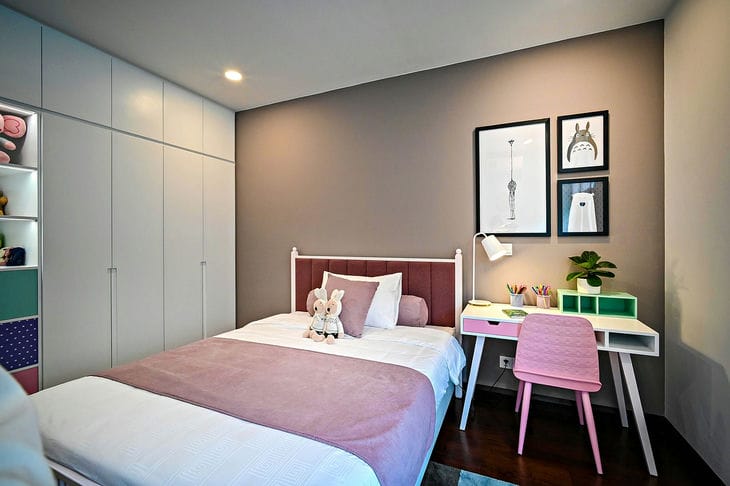How to choose furniture for a small children's room: a designer analyzes common mistakes
When choosing furniture for a small children's room, it is important to give preference to functionality, compact design and safety.
Here are some tips to help you make the most of your limited space and create a comfortable and practical environment for your little one:
Measure the available space
Before buying any furniture, measure the dimensions of the nursery, says Yulia Tychino.
This will help you determine what size and type of furniture will work best in the room. Consider doorways, windows, and any other obstacles that may affect its placement.
Set your priorities
Identify the basic furniture items you will need in the nursery. Typically, this will include a crib, a changing table or dresser, and a chair or glider for feeding and socializing.

Don't overfill the room with unnecessary items that take up precious space.
Choose a compact crib
Look for cribs that are designed specifically for small spaces.
Convertible cribs are also a great option because they can grow with your child, eliminating the need for additional furniture in the future.
Multifunctional furniture
Maximize the functionality of your kids' furniture by choosing pieces that serve multiple purposes.
For example, consider a changing table that doubles as a dresser or a crib with built-in storage underneath. This will help you save space and eliminate the need for additional furniture.
Wall shelves
Instead of bulky bookshelves or cabinets, install wall shelves to store books, toys, or decorative items. This will keep the floor space free and add storage space.
Folding or portable furniture
If space is extremely limited, consider using folding or portable furniture.
When not in use, it can be easily stowed away, providing flexibility and freeing up valuable space. Folding changing tables or portable bassinets are a great option for smaller nurseries.
Vertical space
Make the most of vertical space by using tall shelves or wall-mounted organizers. This will help keep the floor space open and clutter-free, and will also provide additional storage options.
Light furniture
Choose light colored furniture for your small nursery as it creates the illusion of more space. Light colors reflect more light, making the room feel airy.
Also, consider furniture with a minimalist design, which can visually expand the room.
Bulky furniture
Avoid bulky furniture pieces that may clutter the room.
Choose sleek and streamlined designs that take up less visual space. This will create a feeling of spaciousness in the nursery.
Safety first
No matter the size of your nursery, safety should always be a priority.
Make sure the furniture you choose meets safety standards and does not have sharp edges or small parts that could pose a danger to your child. Secure the furniture to the wall to prevent tipping.
Previously, ideas for decorating a balcony were reported.
